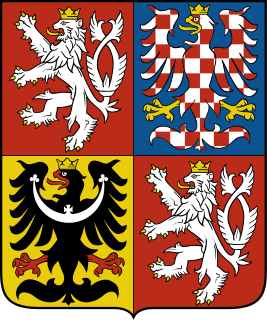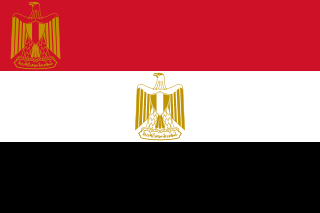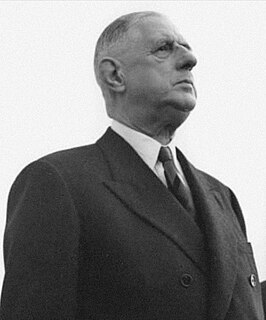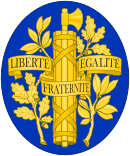
The Czech Republic is a unitary parliamentary republic, in which the President is the head of state and the Prime Minister is the head of government.
Executive power is exercised by the Government of the Czech Republic which reports to the Chamber of Deputies. The Legislature is exercised by the Parliament. Czech Parliament is bicameral, the upper house of the Parliament is the Senate, the lower house of the Parliament is the Chamber of Deputies. The Senate consists of 81 members who are elected for six years. The Chamber of Deputies consists of 200 members who are elected for four years. The Judiciary system is topped by the trio of Constitutional Court, Supreme Court and Supreme Administrative Court.
The highest legal document is the Constitution of the Czech Republic, complemented by constitutional laws and the Charter of Fundamental Rights and Freedoms. The current constitution went in effect on 1 January 1993, after the Dissolution of Czechoslovakia.

The president of France, officially the President of the French Republic, is the executive head of state of France, and the commander-in-chief of the French Armed Forces. As the presidency is the supreme magistracy of the country, the position is the highest office in France. The powers, functions and duties of prior presidential offices, in addition to their relation with the prime minister and Government of France, have over time differed with the various constitutional documents since the Second Republic.
An electoral college is a set of electors who are selected to elect a candidate to particular offices. Often these represent different organizations, political parties or entities, with each organization, political party or entity represented by a particular number of electors or with votes weighted in a particular way.
President of the Senate is a title often given to the presiding officer of a senate. It corresponds to the speaker in some other assemblies.

The Fifth Republic is France's current republican system of government. It was established on 4 October 1958 by Charles de Gaulle under the Constitution of the Fifth Republic. The Fifth Republic emerged from the collapse of the Fourth Republic, replacing the former parliamentary republic with a semi-presidential system that split powers between a president as head of state and a prime minister as head of government. De Gaulle, who was the first French president elected under the Fifth Republic in December 1958, believed in a strong head of state, which he described as embodying l'esprit de la nation.

The National Assembly is the lower house of the bicameral French Parliament under the Fifth Republic, the upper house being the Senate. The National Assembly's legislators are known as députés, meaning "delegate" or "envoy" in English; etymologically, it is a cognate of the English word deputy, which is the standard term for legislators in many parliamentary systems).

The president of Egypt is the executive head of state of Egypt and the de facto appointer of the official head of government under the Egyptian Constitution of 2014. Under the various iterations of the Constitution of Egypt following the Egyptian Revolution of 1952, the president is also the supreme commander of the Armed Forces, and head of the executive branch of the Egyptian government. The current president is Abdel Fattah el-Sisi, who has been in office since 8 June 2014.

The current Constitution of France was adopted on 4 October 1958. It is typically called the Constitution of the Fifth Republic(French: Constitution de la Ve République), and it replaced the Constitution of the Fourth Republic of 1946 with the exception of the preamble per a Constitutional Council decision in July 1971. The current Constitution regards the separation of church and state, democracy, social welfare, and indivisibility as core principles of the French state.
In France, the term Gaullist Party is usually used to refer to the largest party professing to be Gaullist. Gaullism claims to transcend the left–right divide in a similar way to populist republican parties elsewhere such as Fianna Fáil in Republic of Ireland, the Justicialist Party in Argentina, and the African National Congress in South Africa.

The president of the Czech Republic is the head of state of the Czech Republic and the commander-in-chief of the Armed Forces of the Czech Republic.

The Senate is the upper house of the French Parliament, with the lower house being the National Assembly, the two houses constituting the legislature of France. The French Senate is made up of 348 senators elected by part of the country's local councillors, as well as by representatives of French citizens living abroad. Senators have six-year terms, with half of the seats up for election every three years.
The dissolution of a legislative assembly is the mandatory simultaneous resignation of all of its members, in anticipation that a successive legislative assembly will reconvene later with possibly different members. In a democracy, the new assembly is chosen by a general election. Dissolution is distinct on the one hand from abolition of the assembly, and on the other hand from its adjournment or prorogation, or the ending of a legislative session, any of which begins a period of inactivity after which it is anticipated that the same members will reassemble. For example, the "second session of the fifth parliament" could be followed by the "third session of the fifth parliament" after a prorogation, but the "first session of the sixth parliament" after a dissolution.

The president of the Slovak Republic is the head of state of Slovakia and the commander-in-chief of the Armed Forces. The president is directly elected by the people for five years, and can be elected for a maximum of two consecutive terms. The presidency is largely a ceremonial office, but the president does exercise certain limited powers with absolute discretion. The president's official residence is the Grassalkovich Palace in Bratislava.

France is a unitary semi-presidential republic with a bicameral legislature. Public officials in the legislative and executive branches are either elected by the citizens or appointed by elected officials. Referendums may also be called to consult the French citizenry directly on a particular question, especially one which concerns amendment to the Constitution.

Elections in Benin take place within the framework of a multi-party democracy and a presidential system. Both the President and the National Assembly are directly elected by voters, with elections organised by the Autonomous National Electoral Commission (CENA).

Presidential elections were held in France on 5 December 1965, with a second round on 19 December. They were the first direct presidential elections in the Fifth Republic and the first since the Second Republic in 1848. It had been widely expected that incumbent president Charles de Gaulle would be re-elected, but the election was notable for the unexpectedly strong performance of his left-wing challenger François Mitterrand.

A referendum on the method of the election of the president was held in France on 28 October 1962. The question was whether to have the President of the French Republic elected by direct popular vote, rather than by an electoral college. It was approved by 62.3% of voters with a 77.0% turnout. The reform was controversial because it strengthened the executive at the expense of Parliament, and because of the disputed constitutionality of the procedure used.

In France, the French constitution of 4 October 1958 was revised many times in its early years. Changes in this fundamental law have become more frequent since the 1990s. This has had two major causes: the desire to modernize public institutions on one hand, and adapting to the European Union and to international law on the other.

Semi-parliamentary system can refer to either a prime-ministerial system, in which voters simultaneously vote for both members of legislature and the prime minister, or to a system of government in which the legislature is split into two parts that are both directly elected – one that has the power to remove the members of the executive by a vote of no confidence and another that does not. The former was first proposed by Maurice Duverger, who used it to refer to Israel from 1996-2001. The second was identified by German academic Steffen Ganghof.
There have been eleven presidential elections in France since the establishment of the Fifth Republic in 1958.

















